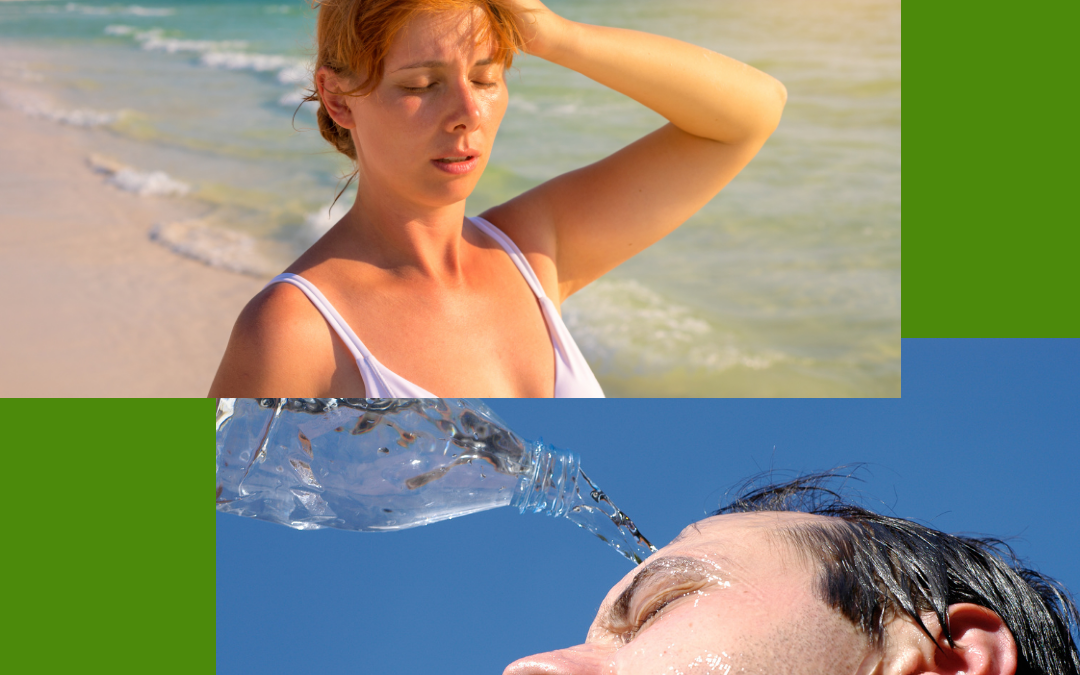by admin | Nov 23, 2022 | Newsletter |
At this time of year, we are especially thankful for our lives, family and friends. Living a life of thankfulness is a wonderful quality to have year round. To live with gratitude means continuously appreciating all we have. Things may not always turn out as we hope, but living with gratitude means looking on the positive side, appreciating what we do have and taking advantage of every moment and experience. “Gratitude is strongly and consistently associated with greater happiness. Gratitude helps people feel more positive emotions, relish good experiences, improve their health, deal with adversity, and build strong relationships.”(1) The importance of living life to the fullest was brought home to me recently when two people dear to me, a relative and a friend passed away suddenly. Life is precious and we need to live joyous, purposeful, and giving lives. Here are some steps to achieve these goals: 1. Acknowledge that we can choose how we live. We can prioritize what makes us happy. We can live life to the fullest! 2. Ask these questions: What really matters to me? How am I spending my time and does it make me feel fulfilled? Am I devoting time to self improvement and living a life of purpose? Can I find humor even during challenging times? Am I pursuing my passions and also contributing to the lives of others? Am I managing my health so that I have optimal mental, emotional, and physical vitality, resilience, and well-being? I hope these questions inspire you to make positive changes in your life and the lives of others. I wish you a beautiful Thanksgiving. And...

by admin | Aug 9, 2022 | Newsletter |
When I started to write this issue of the Newsletter, we had just witnessed the recent horrific loss of life and injuries in Buffalo. Then, we experienced the shooting of children and adults in Uvalde. This was on top of the Russia-Ukraine War and the effects of other wars, insurrections, terrorism, and national and international political events. The news of these negative events jolted my physiology. I experienced emotions of sorrow, anger, and fear often at the same time. I realize that exposure to violence has become a daily occurrence in our lives, in addition to the everyday personal stressors that we deal with. I am concerned about the health effects of these toxic events on myself, my family, friends, my patients, you, and the people of the world. Thinking about this led me to ask these two questions: 1. How do we METABOLIZE the effects of these stressors on our minds, bodies, and spirits so that we don’t get sick? 2. How does one CULTIVATE a Calm Mind in the face of massive distress and uncertainty? To answer these questions I believe we need to first focus on our own health and well-being. To help you do this, I recommend going back to basics and accessing the Don’t Mess with Stress™ framework described in my book, and summarized below. As I have stated in prior Newsletters, this Don’t Mess with Stress™ foundation helps us create physical, mental, and emotional strength and resilience, which lead to centeredness and calmness. Check Out these Don’t Mess with Stress™ “Core 4” Components: 1. Diet: Have an anti-inflammatory, Mediterranean Diet—mostly plants, fruits, seeds,...

by admin | Mar 15, 2022 | Newsletter |
I hope you are well during these challenging times. We have been through a lot lately—the Pandemic, and on top of that, the current war between Russia and Ukraine. It can be a challenge to maintain our stability and equanimity in witnessing the horrors of war and dealing with the stress of the Pandemic. We must create resilience in our minds, emotions, and bodies to deal with these stressors. To help increase your stability and physiologic reserve, I am devoting this issue of the Newsletter to Meditation, which is a core part of my Don’t Mess with Stress™ program. (1) I have written about meditation in a prior Newsletter. However, I feel it is an important linchpin in facilitating stress hardiness and reserve, the qualities that we need now more than ever. Meditation can help us cultivate a mindset of calmness and centeredness, to thoughtfully respond in our decisions and interactions. It gives us time to pause during our busy lives. I have been meditating for a long time, ideally twice per day but not always, and it has been an anchor in my life. In addition to having a daily meditation practice, I also recommend going back to the other three lifestyle basics as outlined in my book, Don’t Mess with Stress™: Diet, Walking(Exercise, Physical Activity, Dance, etc.), and adequate Sleep. Please go to Dr. Jill Baron Blog for articles about these 3 important behaviors, and check out my book, Don’t Mess with Stress™ for a more comprehensive discussion. ———————— How Meditation Helps Your Brain Function Better A lot of the research on meditation has been done on Mindfulness Meditation. The goal with Mindfulness Meditation is to have present moment awareness in a non-judgmental and non-reactive way, “with an orientation...

by admin | Aug 6, 2021 | health, Newsletter |
I hope you are doing well. It’s a been a little while since I have written to you and I wanted to reach out and connect. This month’s Newsletter is about dealing with heat outside. Coincidentally, I am going to be speaking about “burnout” next week, which is generated from both outside and inside ourselves. Heat Related Illness: Earlier in the summer in places in New York City and around the country, there were heat waves. In August, it can also get very hot outside and I wanted to give you some tips to help you stay cool and healthy in the heat. Heat-Related Illness is a term that encompasses a spectrum of conditions from hyperthermia (overheating of the body) to lower extremity swelling, cramps, to heat exhaustion, and finally heat stroke. (1) According to the Wilderness Medical Society Clinical Practice Guidelines for Prevention and Treatment of Heat Illness: 2019 Update, Heat Exhaustion is “mild to moderate heat illness” due to exposure to high environmental temperatures or strenuous physical exercise. The signs and symptoms of Heat Exhaustion include “intense thirst, weakness, discomfort, anxiety, dizziness,” and fainting. (1) One’s body temperature might be normal or elevated up to but not including 104 degrees F. With Heat Stroke, the body temperature is greater than 104 degrees F, and the signs and symptoms are more severe and can be deadly. They include “altered mental status, seizures, or coma resulting from passive exposure to heat or strenuous exercise.” (1) Also, flushed skin, rapid breathing, racing heart, and headache can be seen with heat stroke. (4) How can you prevent heat-related illness? First, identify your risk factors. Having any of the following conditions increases...

by admin | Apr 21, 2020 | Newsletter |
I hope you are staying safe and healthy during this very challenging and surreal time. It is not easy hearing about the swelling number of cases of and deaths from Coronavirus. It can be frightening and difficult to process. That said, I thought I would send out some thoughts and information, as well as some lighter fare to brighten your day. To start, here is a funny message I received from a friend: “A person was in CVS and saw a man whose cart was so full to the brim with hand sanitizers, baby wipes, and soaps. Everything that people need! The person told him how selfish he was and gave him the low down on the elderly, moms and people who need these types of things. The person also told the man he should be ashamed of himself. He then asked the person, “Are you done? Because I really need to get back to restocking the shelves now.” And a sweet takeoff on the Simon and Garfunkle song, “Homeward Bound” to make you smile. For Health Education about Coronavirus, I direct you to two videos that I found helpful: * A poignant and informative video from Dr. David Price, who is on the frontlines at New York Presbyterian/Weill Cornell. * A helpful video from a fellow Family Physician on how to clean your food from the supermarket or takeout. Can be applied to food delivery. “Silver Linings” from the Coronavirus Pandemic: First—We in the medical community are on a steep learning curve. We are learning much about this virus. It is possible that new treatments and preventive measures...

by admin | Mar 26, 2020 | Newsletter |
I know we are going through a challenging and surreal time during this Coronavirus pandemic. I have been reflecting on how best to empower myself and you to stay strong, healthy and keep a positive attitude. Reading and listening to the news, albeit important, also brings me down, both mind and body. The key is to stay abreast of the news, yet, prevent our immune systems from weakening from the stress, fear, and negativity. Here are some tips to help us weather the storm of this serious crisis. Of course, I cannot promise that any of these tips will prevent you from getting sick, but I believe they can strengthen your resilience and enhance your immune system. The Basics: Remain Calm. Stress and worry weaken your immune defenses. Avoid contact with the virus–I know this is challenging, since you don’t know who is infected or a carrier. Do your best to avoid crowded areas. Get enough Sleep. Aim for 7-9 hours per night. Go to bed before midnight, and ideally earlier, as the stress hormone cortisol goes up after midnight. Wash your hands often for at least 20 sec (sing Happy Birthday twice) –with soap and water, or if not, with hand sanitizer containing greater than 60% alcohol. Avoid touching your eyes, nose, mouth, and face with unwashed hands. For additional tips on Coronavirus prevention, please go to this CDC website: https://www.cdc.gov/coronavirus/2019-ncov/about/prevention.html Tips from Traditional Chinese Medicine: 1. Drink boiled hot water and add honey. Honey adds moisture to your lungs, according to Dr. Nan Lu, a Traditional Chinese Medicine expert and colleague. You can also add fresh ginger slices...





